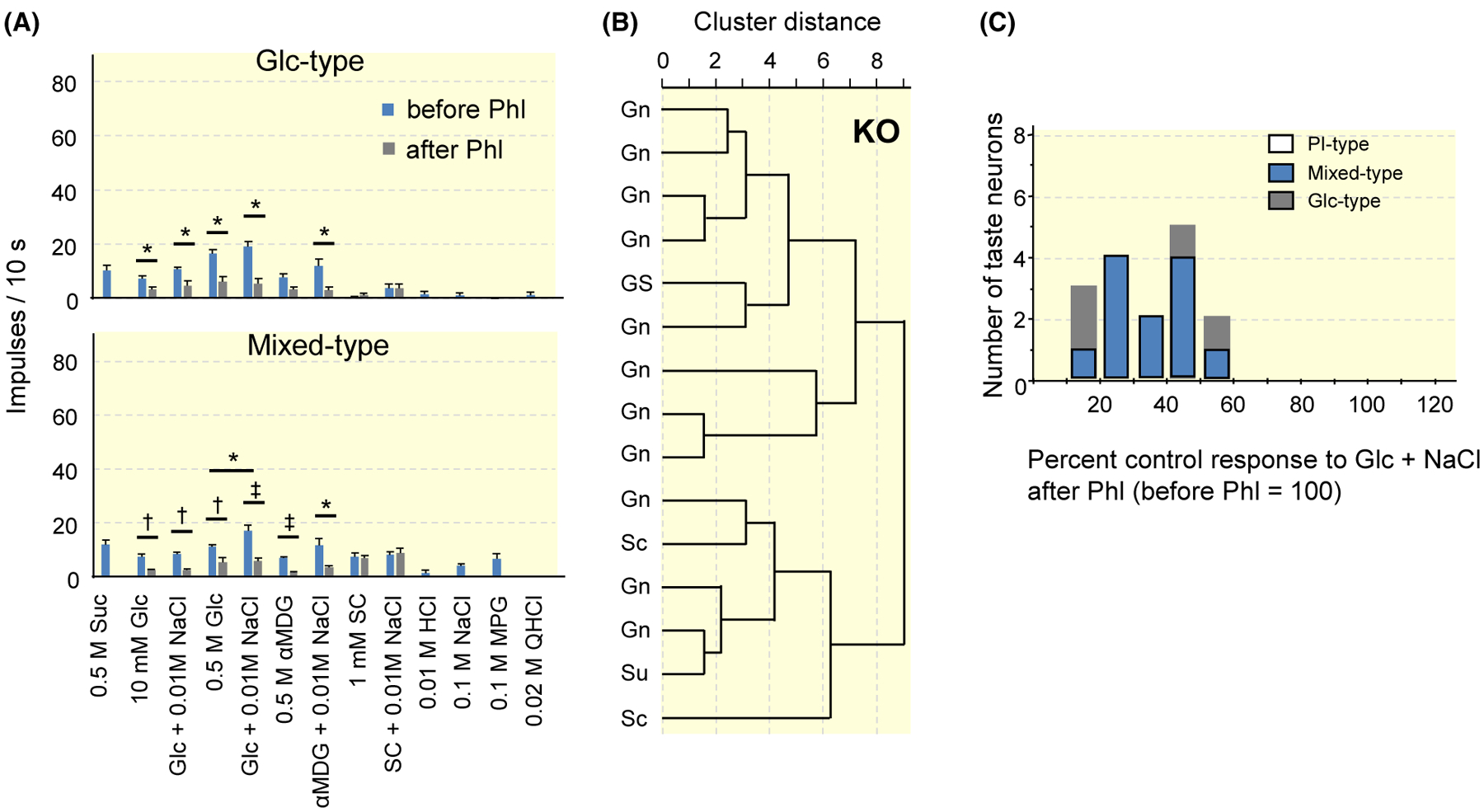FIGURE 9.

Results of single-fibre recordings from the chorda tympani nerves of T1R3-KO mice. A, Response profiles of Glc- and Mix-type fibres. Stimuli are 0.5 mol/L sucrose (Suc), 10 mmol/L glucose (Glc), 10 mmol/L Glc + 10 mmol/L NaCl, 0.5 mol/L Glc, 0.5 mol/L Glc + 10 mmol/L NaCl, 0.5 mol/L αMDG, 0.5 mol/L αMDG + 10 mmol/L NaCl, 1 mmol/L SC45647 (SC), SC + 10 mmol/L NaCl, 10 mmol/L HCl, 0.1 mol/L NaCl, 0.1 mol/L monopotassium glutamate (MPG), 20 mmol/L quinine HCl (QHCl). Each column indicates the mean number of net impulses per 10 seconds (mean response) ± SE. Results of paired t test for the effect of the addition of 10 mmol/L NaCl and the effect of 1 mmol/L phlorizin (Phl) on responses to Glc or αMDG are shown in Table 8 and Table 9 respectively; *P < .05, †P < .01, ‡P < .001. B, Results from hierarchical cluster analysis according to responses to taste stimuli tested. Su, Sc, Gn indicate the stimulus producing the maximal response among Suc, SC and Glc + NaCl in the fibre. GS indicate same impulse frequencies in responses to Glc + NaCl and Suc. C, Fibre distribution by means of Phl sensitivity of the fibres in response to 0.5 mol/L Glc + 10 mmol/L NaCl
